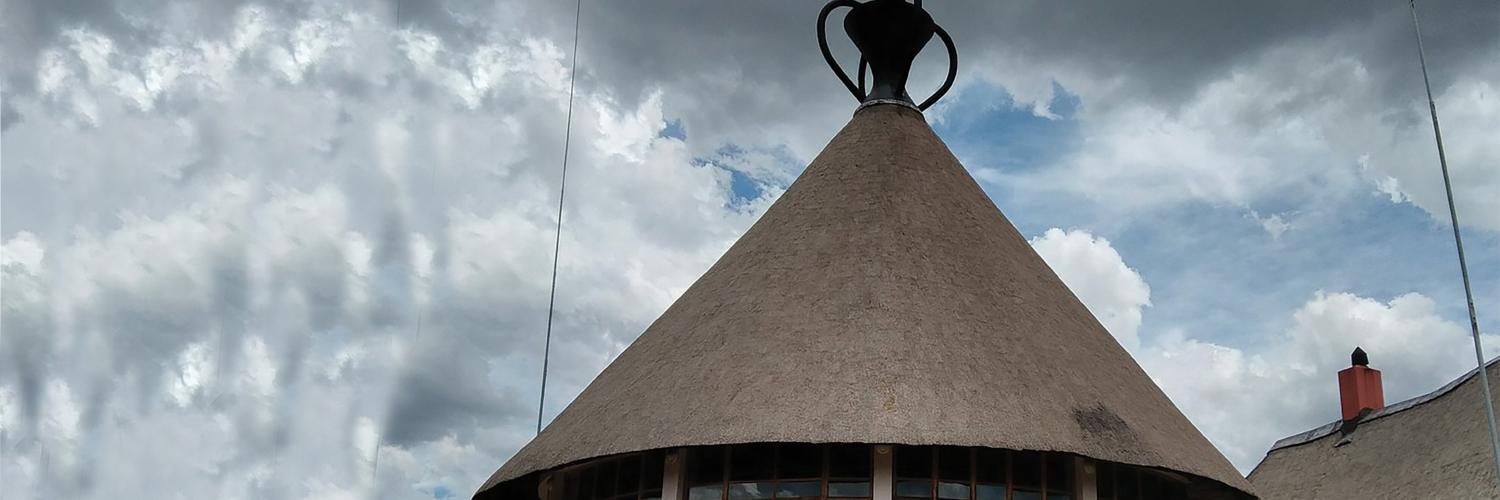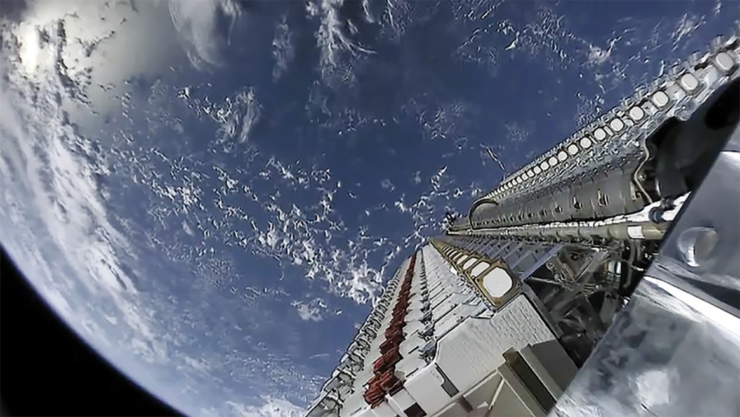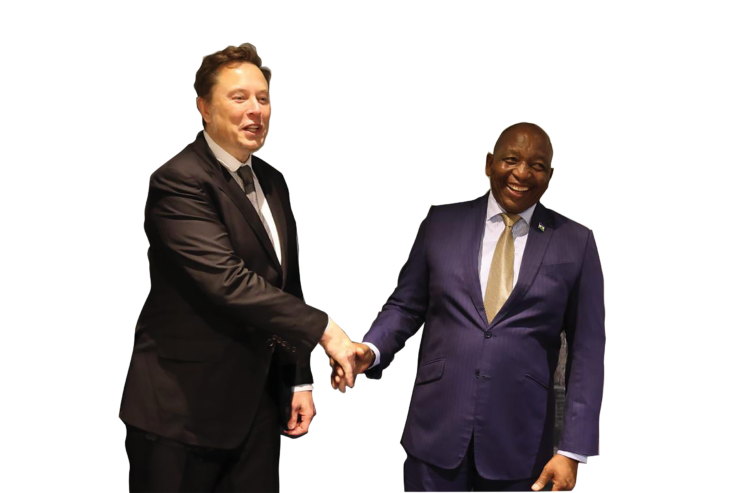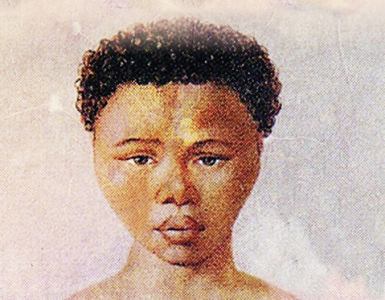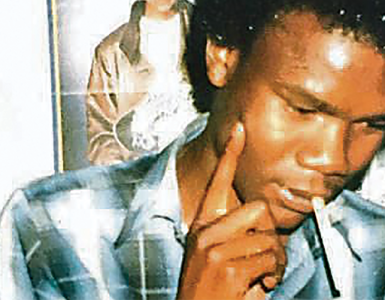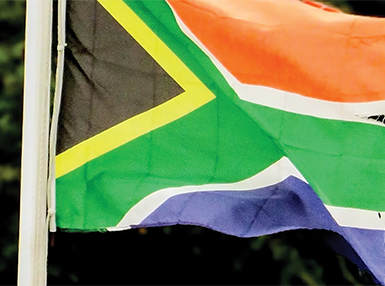GLOOMY: With 50 percent imposed on the kingdom, hundreds of local jobs at large factories producing jeans for American brands, like Levi’s and Wrangler, are at immediate risk…
By Pavan Kulkarni
Slapped with the highest tariff rate by US President Donald Trump’s administration, the small southern African kingdom of Lesotho, with a population of just above two million, finds itself in dire straits.

Fears abound that the 50% tariff imposed on this poor, mountainous country, landlocked by South Africa, may sound the death knell of its largest private sector employer – the textile industry – which exports 75% of its output to the US.
A total of 35 000 workers, predominantly women, are employed in this sector, which yields about 20% of Lesotho’s GDP. About 12 000 of them, working in large factories producing denim for the jeans labelled by American brands, like Levi’s and Wrangler, are at immediate risk of losing their jobs.
No other industries are developed on a large enough scale to absorb them in Lesotho’s underdeveloped, largely rural economy, with an unemployment rate as high as 25%, Solong Senohe, the general secretary of the United Textiles Employees (UNITE) told Peoples Dispatch.
Neither can they earn a living off the land as peasants in the highly distressed agrarian economy. “Unfortunately, they will have to join the large numbers of people migrating from Lesotho to South Africa” to eke out a living “as sex slaves, domestic workers and illegal miners,” laments Senohe.
Trump’s tariff calculations are “idiotic”, “nonsensical”, and “arbitrary”, say economists
The Trump administration maintains that the tariffs it has imposed are “reciprocal”, charging only half of what Lesotho has imposed on American goods. Using a method economists have described as “idiotic”, “complete nonsense”, “random and arbitrary”, it calculated that Lesotho is charging a tariff rate of almost 99%.
To arrive at this figure, the US administration simply divided its trade deficit with Lesotho last year by the total value of the goods imported from it. In 2024, the US imported from Lesotho USD 237.3 million (approximately R4,5 billion) worth of goods, mainly denim and diamonds, while its exports were worth only USD 2.8 million (R54 billion). Subtracting US imports from its exports provides for a trade deficit of USD 234.5 million (R4,4 billion).
Dividing this deficit by the value of US imports from the country last year, Washington claims that Lesotho is charging almost 99% tariffs on US goods.
This tariff calculation by the US administration “is not based on facts,” said Lesotho’s Trade Minister Mokhethi Shelile. Neither Trump, who mocked Lesotho last month as a country “nobody has ever heard of”, nor his minions laughing at this insult, appear keen on understanding the factual reality.
Nevertheless, the facts are self-evident. The massive difference between US imports and exports to Lesotho is not due to Lesotho’s tariffs on American goods. It is rather because Lesotho’s GDP of just USD 2 billion (R38 billion), yielding a per capita annual income of less than a thousand dollars, does not leave much spare money in its economy to import American goods.
The World Bank estimates that 36% of its population of 2.3 million earn less than USD 2.15 (R41) a day. “A full 67% of the population is considered poor,” according to Bertelsmann Stiftung’s Transformation Index (BTI) 2024.
This poverty, driven in large part by the unemployment of almost a quarter of its working-age population, has ensured the availability of very cheap labour. The US companies have enthusiastically exploited this to produce jeans cheaply for their own market, especially after the African Growth and Opportunity Act (AGOA) 2000 provided duty-free access to US markets for products from selected sub-Saharan countries.
However, the workers manufacturing these US-destined jeans in Lesotho’s factories cannot afford to buy a single pair, earning only USD 150 a month (R2 871), Senohe said. This inability of some of the world’s poorest people to purchase American products while producing them is effectively what Trump described as the US being “treated badly”.
Retaliating against this imagined mistreatment, he has imposed the highest tariff rate of 50% on this poor country.
While Trump declared April 2, when he announced the tariffs, as “Liberation Day”, Teboho Kobeli, who employs about 2 000 workers in Lesotho, told the BBC, “This has been a devastating day for us”.
He is the founder of Afri-Expo Textiles, one of the few domestic enterprises in the industry mainly dominated by foreign investors. Although not catering exclusively to American brands, 10% of its produce was being sold in the American market.
“We have been going up and down, meeting different stakeholders, government officials, ministers, [and holding] meetings [amongst] ourselves as industrialists,” he said, adding that the government has assured them its support. However, the government has not provided a similar assurance to the workers. “We have asked for a meeting with the Department of Trade and Industry, but to no avail,” said the union’s leader, Senohe.
Nevertheless, “We have been engaging with the company’s owners since the Trump administration made this announcement. We are also approaching the American embassy together,” he added.
“We just have to speak to the US administration,” said Trade Minister Shelile. “We are a small economy… we are concerned about the possible closure of textile factories.”
While trying to increase “export to alternative markets such as the European Union and the Africa free continental trade area” in the medium term, the government is immediately “assembling a high-level delegation to the United States to try to maintain the current market dispensation,” he added.
“We are looking at other markets in Africa, Europe [and] elsewhere, but we can’t just shelf the US market,” maintains Kobeli. “We need to do everything we can to bring back that market”.
Lesotho under pressure to approve Starlink licence
BARRIERS: Prime Minister says his government is removing obstacles to US investment, including Starlink, in the wake of the tariff hike
By Sechaba Mokhethi
Lesotho Prime Minister Samuel Matekane on Wednesday announced that his government is actively removing barriers for US companies to operate in the country — including satellite internet provider Starlink, a subsidiary of Elon Musk’s SpaceX, despite the local opposition to the project.
This follows an announcement in February by the Lesotho Communications Authority (LCA), confirming receipt of Starlink Lesotho application for a Network Services Licence. The company seeks to offer satellite internet services to businesses and the public across Lesotho.
But the bid has sparked strong local opposition. Vodacom Lesotho Managing Director Mohale Ralebitso raised concerns during an LCA public consultation, arguing that Starlink should establish local shareholding before receiving a licence. “Local involvement may foster partnerships with domestic businesses, thereby creating investment opportunities and ensuring broader economic inclusion,” said Ralebitso.
A local organisation, Advocates for the Supremacy of the Constitution, commonly known as Section Two, echoed those concerns in its formal submission to the LCA. “While Section Two recognises the potential benefits of expanded internet access, we respectfully oppose the issuance of this licence to Starlink due to the complete absence of local ownership in the company,” said Secretary General Tjatjapa Sekabi.
Sekabi pointed to existing telecom players as examples of how foreign investment can coexist with national interests. Econet Telecom Lesotho, he noted, is 70% owned by Econet Wireless Global, with the Government of Lesotho holding the remaining 30%. Vodacom Lesotho is 80% owned by the Vodacom Group, while the remaining 20% is held by the Sekha-Metsi Consortium, a group of local Basotho businesspeople and public figures.
By contrast, “Starlink Lesotho’s submitted documents indicate that all 1,000 shares are owned by Starlink Holdings Netherlands B.V., a foreign entity based in Amsterdam, with all registered directors being US citizens,” Sekabi said. “This leaves no room for Basotho ownership: neither through the government nor through private local entities.”
But Lesotho is under pressure from the United States.
On 2 February, US President Donald Trump imposed a 50% tariff on imports from Lesotho — the highest among all affected countries — threatening up to 12,000 jobs in factories that export to the US under the African Growth and Opportunity Act (AGOA). On Wednesday Trump paused the 50% tariff for 90 days. But this still leaves in place the 10% tariff that came into effect on 4 April.
Prime Minister Matekane says his government has been lobbying for tariff relief and the reinstatement of development aid. At the Third Private-Public Dialogue National Conference held in Maseru, he positioned Starlink’s licence as part of broader efforts to attract US investment. “We are actively removing obstacles to US investment, addressing issues like Starlink, energy, and hospitality investment approvals,” Matekane said.
On the other hand, the LCA says it continues with its public consultations. Speaking to GroundUp, LCA Public Affairs Manager Mothepane Kotele said the authority had concluded its review of public comments and was now “engaging with those who contributed”.
Section Two applauded Matekane’s efforts to address the economic fallout from US tariffs but cautioned against linking those discussions to Starlink’s licence. “These tariffs are unrelated to Starlink’s application,” coordinator Kananelo Boloetse said in an interview with GroundUp.
“Opposition to Starlink stems solely from its 100% foreign ownership and its implications for national interests. If the government intends to approve the licence despite this, it should say so clearly and directly, rather than obscuring the issue behind the tariff debate.”
Boloetse also urged the government not to prioritise its relationship with the Trump administration at the expense of regional ties. “Lesotho’s economic reality shows that over 70% of our exports flow to South Africa, compared to less than 20% to the US,” he said. “Straining ties with South Africa to impress Trump or Musk could jeopardise the interests of Basotho. Section Two urges a balanced approach.”
He warned that South Africa has already rejected Starlink’s licence application over concerns about its foreign ownership. Approving the same licence in Lesotho, he argued, could strain diplomatic relations with Pretoria, especially if the move appears to be driven by attempts to appease Elon Musk and Donald Trump.
“Permitting Starlink here might enable South Africans to circumvent their own country’s regulations by accessing services through Lesotho, and this, we believe, could create tension with our neighbour,” Boloetse said.
He emphasised that if the government does choose to approve Starlink’s application, the decision must be made through a transparent, independent process that places national interest above foreign appeasement.

